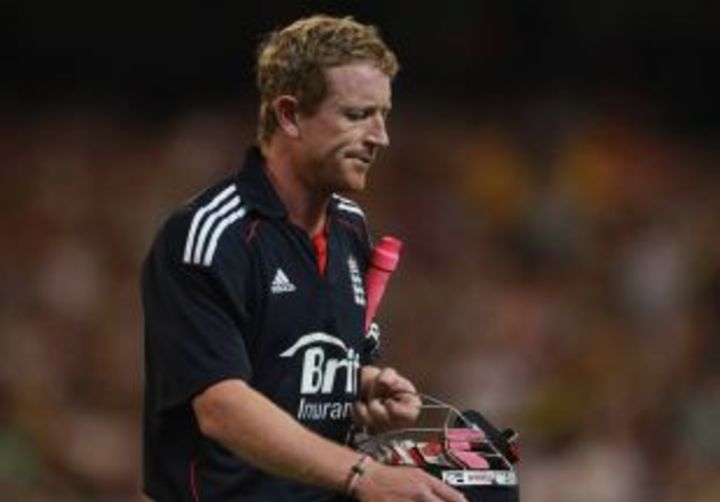Collingwood tells of captaincy hurt
Paul Collingwood has spoken about his hurt at losing the England Twenty20 captaincy to Stuart Broad and revealed that he wasn't given the chance to interview for his position

Paul Collingwood has spoken about his hurt at losing the England Twenty20 captaincy to Stuart Broad and revealed that he wasn't given the chance to interview to keep the position. Despite insisting he still has the desire and determination to continue his England career, he also admitted he "has some thinking to do."
Collingwood was called to a meeting with Geoff Miller, the national selector, on Wednesday morning in London, 24 hours before the ECB revealed Broad as the new Twenty20 captain alongside Alastair Cook for the 50-over side. The decision to remove Collingwood came just a year after he led England to the World Twenty20 title in West Indies, their first piece of global silverware, and Collingwood had always stated his aim of defending the prize in Sri Lanka next year.
"Four days ago I was upbeat about getting back into training and playing after my knee operation," Collingwood told the Mail on Sunday. "I was full of optimism about trying to regain my form and my place in the one-day side.
"As for the longer term, after retiring from Test cricket in the winter, I had my sights set firmly on leading our defence of the World Twenty20 in 2012. So when Geoff Miller told me, it was like a juggernaut had come along at full steam and completely wiped me out ... just disbelief."
Collingwood, though, was quick to offer his full backing to the new captain. "I want to make it clear I totally support Stuart Broad as my successor. He has the kind of fast-thinking brain that you need in Twenty20 captaincy. But even though I understand all that ... I'm still very disappointed and hurt by what has happened."
Despite being a reluctant captain, who needing persuading to take the Twenty20 captaincy in 2009 after having had a difficult time in charge of the one-day teams, Collingwood grew to savour the role. The successful World Twenty20 campaign formed the bulk of a record eight-match winning streak that only ended when England lost the second Twenty20 against Australia in Melbourne in January.
"After having decided to retire from Test cricket, my desire and motivation to lead England on to the next World T20 grew stronger," Collingwood said. "It was my passion, my last big ambition in international cricket. It meant a massive amount to me."
It is likely that Collingwood's slump in form played a major part in the decision to look towards the future with Broad. Despite England's Twenty20 success, Collingwood's own contributions with the bat were minimal over the last year - with a top score of 21 in his last 13 T20 innings - and a persistent knee problem reduced his bowling workload.
Yet, having retired from Test cricket after the Ashes, Collingwood was determined to revive his limited-overs career and underwent knee surgery after the World Cup. He remains on course to return for Durham's domestic Twenty20 campaign, which starts in June.
"By not playing Test cricket, I felt I would have the mental freshness to carry on as leader and to prolong my form when it came back and extend my international future," he said. "Now, while it would be madness to cut things short straightaway, the future is far less clear than it was four days ago. I have some thinking to do. I'm still very fit and I want to show people I can still play."
Read in App
Elevate your reading experience on ESPNcricinfo App.